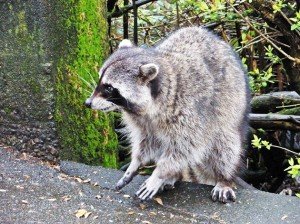
Updated: April 4, 6 p.m.
Prince William Health District environmental health and communicable disease programs reports a rise in wildlife confirmed to be rabid in the Nokesville area in the past several months.
"Throughout the health district, 11 animals have been confirmed rabid from July 2013 to the present; of those, 11 animals, four raccoons and one skunk were from Nokesville," PWHD officials said. "All five of these animals were caught, euthanized and tested positive for rabies after altercations with domestic animals"
Although rabies is common in wildlife throughout Virginia, PWHD said it is important to monitor for these occasional increases and reinforce awareness in the community about rabies prevention and personal protection.
Original Story
The Prince William Health District (PWHD) is warning Nokesville residents that a rabid raccoon tested positive for the rabies virus after attacking a dog on Mar. 24.
The raccoon was found in the area of Franklin Woods and Fleetwood Drive, but Animal Control representatives say that they see rabid animals from all over the county.
PWHD euthanized the raccoon.
"Since July 2013, Nokesville has had three other raccoons and a skunk that tested positive for rabies," officials from the Health District said. "A total of 11 animals tested positive throughout the district during that period."
In FY 14, the PWHD quarantined 381 animals for potential rabies exposure, and responded to 444 animal bite reports, they said.
Rabies, a disease caused by a virus which eventually infects the spinal cord and brain, causing convulsions, paralysis, and eventually death, is most commonly transmitted by introducing virus-laden saliva of a rabid animal into a bite wound.
"It is rarely transmitted by a scratch or fresh break in the skin or through intact mucous membranes," they said.
Common carriers of rabies include raccoons, skunks, foxes, bats, dogs and cats. Rabbits, squirrels, chipmunks, rats, mice, gerbils and hamsters may have the rabies virus, but seldom are known to transmit rabies in the United States.
According to the Health District, all animal bites involving humans must be reported to the Prince William County Police Department’s Animal Control Bureau at 703-792-6465 or to the Health District at 703-792-6310.
Support Bristow Beat - Donate Today!